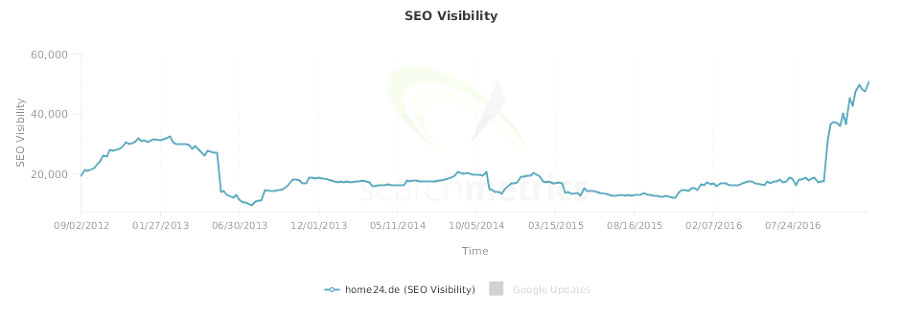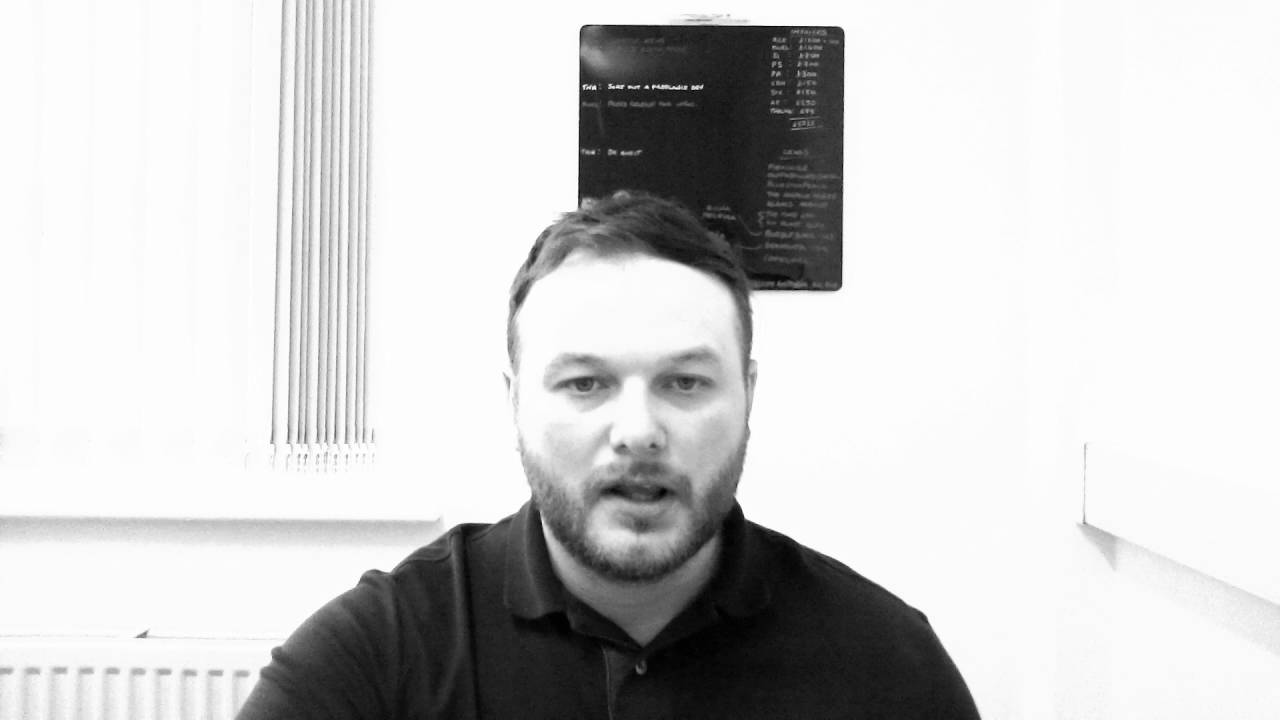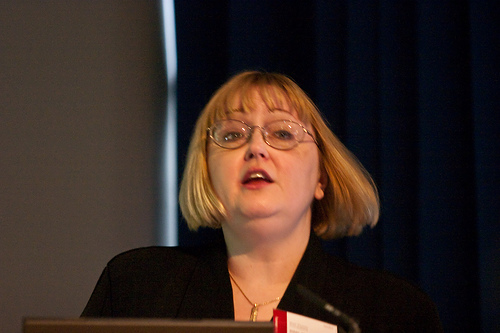
September 23, 2016 – A date which will be remembered by the digital world for years to come because that’s when Google announced Penguin 4.0 – the real-time update. Most of the businesses mourned over it, especially the e-commerce brands because the update came around the same time as the peak shopping season that entails in the last three months of the year.
Just imagine, your rankings taking a serious hit and your main keywords dropping significantly in the SERPs. Feels like HELL! Right? The same was the case for brands all across the world, and as a result, they were deprived of the fruitful results of the seasonal sales.
To avoid such penalties in the future it’s important to learn and strategize the overall link building campaign for the years ahead. Let’s learn the survival advice from our link building experts explaining how to strategize the link building campaign after the recent Real Time Penguin update.
- CHRIS DREYER
- MARTIJN SCHEIJBELER
- HARSH AGRAWAL
- SEAN SI
- SHANE BARKER
- JORDAN KASTELER
- ROBBIE RICHARDS
- SHARI THUROW
- KAREN EVANS
- CHRISTOPHER MILLS
- TOM PICK
- ASHLEY FAULKES
- VENCHITO TAMPON
- DAVID SCHNEIDER
- JAMES NORQUAY
- MARIE HAYNES
- KEVIN INDIG
- PATRICK COOMBE
- MARCUS MILLER
- ALEXANDRA TACHALOVA
- MATT BANNER
- CASEY MERAZ
- STEVE WIIDEMAN
- MATT JANAWAY

CHRIS DREYER – CEO at Rankings.io
The Penguin 4.0 update is a natural progression of Google’s mission to stomp out web spam. I think if they could have made it real time to begin with they would have. Obviously, now that it is updated in real time, search marketing professionals are a little more on edge because the negative consequences are magnified.
Before 4.0 if an SEO knew that there were problems with their client’s sites or that they had been using questionable tactics, they had a window of time to get their act together because Google had to re-crawl everything. Now all of that happens in real time so there aren’t really any more places for people to hide. If Google doesn’t like something, marketers or site owners are doing (as it relates to link building) they are going to find out right away.
This is really the way things should be because those search marketing professionals (and site owners) that are doing things correctly get to reap the benefits for themselves and their clients right away. We don’t have to wait weeks or even months for Google to see the improvements we’ve made to clients’ link profiles. All of that gets laid on the table almost instantly. For us, that is very rewarding and helps us deliver better service to our clients.
As for link building techniques, that folks should be focused on in 2017, I would say that aspect of things hasn’t really been changed by the 4.0 update. SEOs and site owners should still be looking for ways to build authority, help internet users with good information through linking, building links when and where relevant and in general promoting a good user experience through link building.
Earning high-quality links through the generation of high-quality content has always been a good road to follow. The only thing that has changed is that marketers who are earning links in this way are going to see dividends paid much more quickly than before. Something that I think was needed in the SEO world. After all, one of the things that made black hat tactics so appealing was that they were fast.

MARTIJN SCHEIJBELER – Director of Marketing at The Next Web
Let’s try focusing on creating amazing content once more. Most smaller companies I see are still struggling with this concept. They create a press release, write a quick blog post and just assume that links will come flowing in. Well in best of both worlds it should but in the real life, it would be the first company I see this tactic working for. Think about a topic related to your industry/your company and think about how you can create ‘the definitive guide’ around it. List all the topics that you can imagine so you can either create a series of content or 1 big piece that is really valuable. You might be surprised but good content can be really helpful. These kind of content pieces will either already get you links, or otherwise, reach out to people who might think the post is worth mentioning on their own site.

HARSH AGRAWAL – Founder at Shout Me Loud
2016 was the year of relationship building & networking. Influencer marketing is not only limited to brands or products. Rather, influencers or bloggers who have a blog can leverage this marketing technique to generate backlinks.
One best way to do is, become a part of events, Summit, or workshop. These kind of activities are getting momentum & they are a no-cost mechanism for generating high-quality relevant links. 2018 is going to be no different than 2016 for link building.

SEAN SI – Founder and CEO at SEO Hacker
I actually wrote an extensive post about Penguin 4.0 and how it affects SEO. The post was widely shared and got a lot of readers poring through it. Penguin 4.0 is actually a lot ‘kinder’ in the sense that it does not penalize or demote a website. Instead, it simply devalues bad/spammy links. It’s the ‘kindest’ Penguin rollout to date.
As of what link building technique will work best, I always give the one with the best long-term results: write 10x, evergreen content, promote it like hell and build high-quality links to those pieces and watch them generate a perpetual amount of organic links for you.

SHANE BARKER – Founder at Shane Barker
The real-time update doesn’t change the fact that high-quality, audience-focused content is still king. Blogger outreach will continue to be a successful link building strategy this year, as long as it’s done correctly. Which means avoiding the quick and easy outreach methods, like guest blogging networks. Instead, take the time to find the right people for your campaign, while focusing on quality, relevance, and branding. Once you connect with bloggers, work on building genuine relationships with them, rather than treating your partnership like a business transaction.

JORDAN KASTELER – Marketing Consultant at Jordan Kasteler
The update is a good thing in my opinion. It was all too often that clients got penalized with Penguin and would have to wait for the next algo update to get out of it. Now, links are devalued in real-time which means less likelihood of a penalty box. It would also seem to make negative SEO more difficult though it could make negative SEO happen quicker. For some sites, even a few days of being negative SEO costs big money.
To be successful in 2017 you need to do more than “create great content”. Do things that’ll attract natural press. For example, create a philanthropic event and let the press know about it.They have no other choice than to link to you. Ryan Holiday is the key of creating reasons for the press to link to you. I’d suggest reading “Trust Me, I’m Lying” by him. There are great tools for manual link building like broken link replacement with WikiGrabber, reverse engineering outdated sites with the Outdated Content Finder, or DropMyLink to find link roundups, sponsorship/donation pages, etc.

ROBBIE RICHARDS – Founder at Robbie Richards
I think the “real-time” Penguin update is a step in the right direction.
A couple reasons for this –
Instead of having to wait long periods of time between updates, spammy content gets dinged faster, and people who have made an effort to fix an issue can recover faster. As someone who helps companies clean up their link profiles and recover from these penalties, the real-time update will help show results faster. This is huge for businesses who hired a company that engaged in shady link building practices that got their site penalized.
As for specific link building strategies, I don’t think a lot has changed in terms of overall approach. Companies that are building clean links will not have anything to worry about. Companies building shitty links will now be looking over their shoulder more often 🙂
A couple of tactics I’ll be focusing on more this year for clients:
Infographic link building
Ranking for links (i.e. ranking content for keywords people search when looking for a reference – e.g. customer service statistics)
Reverse engineering competitor link profiles
Nothing groundbreaking, but tried and true strategies that work for me.

KAREN EVANS – Founder at Start Blogging Online
1) With the recent RT Penguin update, I lost a bit of traffic at first but was able to recover some by putting in more internal links so that my site was a bit better optimized. On some of my other sites, I seemed to gain some ranking. In other cases, some of the sites that I had purchased a while back had some spammy links going to them. I wasn’t aware when I purchased them and they were just kind of sitting there not doing anything. Before the update, I was having to disavow links and wait for google to re-crawl my site but now they seem to be able to do it without me having to disavow the links.With the recent update, the sites have started ranking a bit.
2) In my opinion, infographic outreach is one of the ways I would recommend to build links. It has worked for us here at Start Blogging Online and we should continue to have success into 2017. Infographic outreach involves the creation of a beautiful infographic image (must be a nice graphic) on an interesting topic related to your niche. You would then publish the infographic on your site and write a few paragraphs about it and link to several inner pages on your site. Then you search for other bloggers in your niche and email them telling them you think the infographic would help their audience and asking them to publish it on their site. Then you tell them you can write a custom introduction to the infographic so they literally don’t have to do anything but publish. You put a link to your website’s infographic as the source in the custom introduction. Alternatively, you can have the infographic code link directly to your website. Readers tend to love the graphics and of course share it on social media.

CHRISTOPHER MILLS – Director at iMod Digital
Link building is a very broad topic, from black hat to white hat to grey hat, there are so many angles one may take. As a white hat SEO, my approach is to always be as natural as possible. If I was pushed, my two tips would be to build relationships and write incredible content. PBN’s, expired domains and the likes still work, but these black hat approaches are frowned on by Google and not everyone can manage them. With Penguin becoming real-time (or at least somewhat real-time), it puts pressure on link builders to acquire links ethically because there is, in theory, no gap before the next algorithm update. For those white hat link builders, real-time makes little difference, however, if a competitor is using a black hat linking technique to rank, the competitor’s site may be removed sooner than previously, thus putting the white hatter ahead. I feel that making the algorithm update real-time was the correct move by Google and we’ve seen some good results since.

TOM PICK – Digital Marketing Consultant at Webbiquity
In the wake of Penguin and its algorithmic progeny, link “building” is all but dead. The exception is having a presence in reputable and local business directories, but those are table stakes–such links won’t set a site apart in search.
The focus will be on link earning, and specifically on a “flight to quality.” Earning those high-quality links will require combining a number of tactics: write for established publications, guest blog on popular industry or niche blogs, and most importantly, build relationships with influencers in your industry. There has to be authentic sharing of value. Buying links is dangerous, begging for them is pathetic. Earning them through mutual benefit and respect is the key.

ASHLEY FAULKES – Founder at Mad Lemmings
To be honest, I don’t think anything has changed in link building since the latest changes from Google. In fact, if you are focusing on the right things (white hat) you will rarely have a problem.
For me, the biggest challenge at the moment is that there are so many people doing the same kinds of link building and outreach. So, my focus is to try to stand out from the crowd by approaching link building as relationship building instead. That way, even if you fail with one email, you establish a connection which can be great for so many things. I think everyone should do this instead of just going for short term wins and low conversion with outreach.

VENCHITO TAMPON – CEO and Co-Founder at SharpRocket
The latest Google Penguin update, making it part of the core algorithm of Google allows soon-to-recover sites or those that have been attacked by negative SEO to recover in lesser time than before. As Penguin becomes more granular, SEOs should now care much of which web page of their sites should be indexed and targeted for links and whether links are built with quality at hand, as it would negatively affect the whole domain otherwise.
The white hat link building strategies that we’re using for the past few years would still be useful in building importance to each of our client’s sites and helping them to improve their organic visibility. A few of what I’d still consider valuable, with the right processes and approaches are:
• Broken link building
• Resource page link building on edu sites
• Guest blogging
• Targeted outreach

DAVID SCHNEIDER – Co-Founder at Ninja Outreach
Actually, I think the real-time Penguin update is a good thing since those hit by any Penguin penalties won’t have to wait too long anymore before they can fix whatever went wrong.
As for my advice, it’s simple. I don’t know how many times Google must try to emphasize it, but just don’t try to game the system.
Google’s goal is to provide more value to human users of its search engine. So build links by only using them editorially. That is, as long as you insert them in relevant content that you believe would really be useful for search engine users, then you’re safe. Also, instead of betting on low-quality content farms and spam sites, build links through influencer marketing from credible thought leaders.
Some questionable tactics may work fast at first. It can even result in high rankings for some time but eventually, as it always does, Google catches up–and once it does, all the time, expense, and effort spent on building those questionable links eventually goes down the drain.
Besides, even if you do rank high, unless you provide any valuable content that human search engine user’s trust, it won’t sustain your traffic or your conversions for the longer term anyway.

JAMES NORQUAY – Consulting Director & Founder at Prosperity Media
Real-time penguin means you can recover quickly and also be targeted quickly so overall it’s not a bad thing if you are doing things correctly and been diligent with your link profile.
What type of link building to focus on – high-quality strategies where you have branded links. It could mean reaching out to relevant sites or looking at what links competitors have acquired and getting the same ones.

MARIE HAYNES – Founder at Marie Haynes Consulting Inc.
In my opinion, Penguin 4.0 has been a good thing for digital marketing. It appears that Google is getting better and better at detecting which links are truly good, earned links and which are self-made just for SEO reasons. This is good news for those who are really good at SEO. But it’s not great news for those who used to get good rankings by finding ways to trick Google into thinking that your site was better than others.
Good SEO now is so much more than link building. But, when it comes to links, the type of link that I feel is still moving the needle is one that exists for reasons outside of SEO. Creating fantastic content and promoting that content is my favorite link building “tactic”. But, this type of thing is quite hard to do.

KEVIN INDIG – SEO Ninja at Kevin Indig
I wouldn’t say real time penguin has been a disaster per se. In fact, it has been a huge relieve for some sites who were suffering under the penalty for more than a year. Just look at the SEO Visibility of the German site home24.de, one of the biggest furniture players on the market.

It dropped in half when Penguin hit in May 2015 and then tripled when Penguin 4.0 came out. Within those more than 3 years, the company had to balance the revenue loss from organic traffic with other (less cost-effective) channels. That’s huge for a company!
The challenge for us is to actually discover that Penguin has affected you because since the ranking changes are made in real-time, they might as well be Panda related or caused by something else. That “blurry vision” of cause and effect is what makes it really hard to react to anti-spam filters in 2017.
Now, as an in-house SEO, you should be aware of any link building activities, but there’s another challenge that I haven’t talked about, yet. Penguin doesn’t necessary punish whole sites anymore, it just devalues the links it considers spammy.
All those ingredients make it almost impossible to “link spam” nowadays. But which serious company/agency does that anymore, anyway? So when proactively building links, make sure those three quality indicators are fulfilled: 1) relevancy, 2) the link is clicked, 3) your link profile is balanced out in comparison to your top5 competitors.

PATRICK COOMBE – CEO and Founder at Elite Strategies
Great question, this update was quite a surprise to us all when they announced it (actually a few months before the official announcement). This last update is bittersweet. The good news is that you no longer have to wait to recover from Penguin! Gone are the days when you have to wait months, even over a year to recover from Google Penguin! Google announced that this update is now ‘real-time’ which allows sites to pop back a little faster than before. The bad news is that your website could get hit by Penguin at any time.
Personally, I really don’t do many things that can be considered in “violation” of Google Penguin, so I really don’t have to worry. Since the SEO I do day to day is for clients of mine that own businesses in real life, I don’t make it my business to gamble with their money. It is one thing to build shady links for an affiliate site you own etc, but building them for a client of yours is really bad news.
In reality, I’ll continue to operate as “business as usual.” Very little has really changed the way we do business or how our clients are ranking, so we’ll continue as is. The one thing that we’ll probably change a little bit is the Penguin recovery clients we take. We really didn’t take them on before, because they took so long to recover, and it was just too anxiety provoking dealing with people who lost all that traffic and being totally helpless in the time it takes to recover from the update.

MARCUS MILLER – Digital Marketing Strategist at Bowler Hat
At my agency, Bowler Hat, in the UK we have not really seen the shockwaves with Penguin 4.0 that we have seen with the earlier iterations (primarily Penguin 1.0 and Penguin 2.0). That said we don’t build spammy links so we would not expect our clients to see huge drops.
We do monitor various niches, particularly for local businesses in the area we operate and we are aware of many businesses using highly questionable link building techniques to some level of success. Really my biggest concern is that penguin 4.0 is too soft on some of the popular manufactured link building strategies like small sets of PBN style sites. Maybe now that the Penguin algorithm is real-time they will tweak the way that certain links are categorized and credited or devalued much more quickly. We will see.
In terms of what works not a lot has changed. You want real, editorial links from relevant, authoritative sites. So, content marketing can work as can guest posting if you are linking to other relevant resources on the target site. Use relevant anchors. Don’t try to trick or play the search engine. Rather, connect what should be connected. Help the search engine discover and understand best of class content and you will not go far wrong.
I wrote a post on my search engine land column just after launch on how to build links and authority with real time Penguin which may be of interest: http://searchengineland.com/authority-link-building-real-time-penguin-259584

ALEXANDRA TACHALOVA – Founder at Digital Olympus
I’m still confident that the best way to get links is to build them through relationships. This approach requires a lot of effort and time; however, it works very well to generate links and brand mentions on a regular basis. That said, if someone is searching for a short-term win, then I recommend using the following strategy:
• Find round-ups and interviews with experts in your niche/industry. (Save time by getting a list of such posts with the help of Buzzsumo.com.)
• Analyze who refers to these pieces with the help of Ahrefs.com. Typically, you’ll find that a good number of round-up experts have added a link to their websites’ “About Me” or “Where I Write” pages.
• After this, do a round-up article and an interview piece of your own, citing those experts you’ve found. Add links back to the content in which they were included.
• Ask those experts to link to your piece.

MATT BANNER – Founder at On Blast Blog
“Google Updates, be they penguin or something equally innocuous like “kitten” are always going to be terrifying for SEOs. In truth, we shouldn’t be afraid of these updates if we’re focusing on the right practices.
We’re over-complicating things like backlinks in a way that ultimately self-destructs our rankings when updates hit. We’re focusing on things search engines want when it’s always been about the user and their experience.
I am in complete agreement with Brian Dead over at Backlinko. He said that sites penalized by Penguin had a very simple problem: Google doesn’t trust them.
That’s really what it comes down to, but thankfully TrustRank is indeed something you can build through practices like these:
• Link out to high-quality sites with authority like .edu, .gov, and news sites.
• Make sure your site has a privacy policy page and terms of use.
• Minimize your bounce rates and blocks from users.
• Always reference your sources
• Focus on branding (About Us page, active social media accounts, etc)
Combine this with a focus on earning backlinks from equally trusted websites, and you’ll find that algorithm updates become significantly less frightening.”

CASEY MERAZ – Founder at Juris Digital
Link building is still very important but it’s changed greatly. With Google’s algorithms getting smarter every day one thing seems to be more clear than ever and that is that relevant links matter. Instead of keeping with the old mentality of getting a link to boost your rankings you should focus on niche websites and partner organizations where there is a symbiotic relationship. The result will be a good link and referral traffic that actually generates new business. Thinking outside of that will only get your website harmed in the long run.

STEVE WIIDEMAN – President and CEO at Wiideman Consulting Group
In my experience, Google’s algorithm indirectly rewards marketers who are able to build trust, brand awareness and word of mouth. If you’re worried about Penguin, you’re not marketing correctly.
Think about the last time someone asked you if you knew the typical price of a specific product. What was your answer? Most likely, you replied “have you checked Amazon.com?”, an answer that makes sense because they have earned your trust, offer competitive pricing and are always top of mind when it comes to buying anything online.
You’ve also just participated in word of mouth marketing, which may result in the person you just spoke with searching Google for “Amazon {product_name}”, a signal and reminder to Google that Amazon is still a good result for {product_name}.
Relationships, partnerships, and giving back to your industry and future customers is the key to link building.
At Wiideman Consulting Group, we offer our entire SEO Roadmap at no cost to colleges and universities as a way to help educate students who might later be future employees, while helping introduce our brand to future marketers. We volunteer at our time as guest speakers, as practitioners for non-profits, and participate in industry studies by donating resources and labor hours. Doing so has made all the difference.
We have yet to ask anyone to link to us, because, well, if you have to ask, you’re not marketing correctly.
For our clients, we also recommend tools such as StoryBase and Keyword Researcher, to help identify questions others ask, where you can solve the problem better than others might be able to. Search for “how to jump start a car battery the right way” to find a featured snippet from Meineke Car Care Centers with a video and helpful tips to assist someone stranded with a dead car battery.
This is how you build authority, earn trust and attract links without passé link building techniques, and in my opinion is the future of white hat, post-Penguin SEO.

MATT JANAWAY – CEO at Marketing Labs
Sometimes SEO’s think too hard about how and where they build links – I believe that this stems from trying to game or cheat Google’s algorithms. Go back to basics and think about the businesses you deal with on a daily or weekly basis. Every company has suppliers, whether it be for energy, IT, office supplies, website designers, accounting or even where you purchase your office tea and coffee from. These are legitimate businesses who have genuine websites and probably a local presence. Find an angle to make a relevant piece of content for the both of you (if you are struggling, write a case study) and get them to add it to their website.
This is a valid link building tactic that gets overlooked but it can be very effective. From Google’s perspective, they expect these kinds of links from businesses that work together so more often than not; they should be safe. You should still perform a check on their link profile just to be safe.
